| Top 10 National News Stories |
| 2017's Top 10 National News Stories | |
|
|
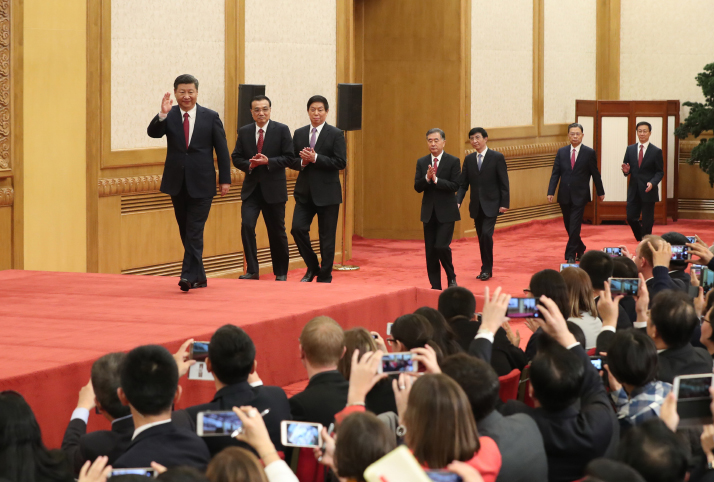 General Secretary Xi Jinping and other members of the Standing Committee of the Political Bureau of 19th CPC Central Committee meet the press after being elected on October 25 (XINHUA)
The 19th CPC National Congress Charts a New Course The 19th National Congress of the Communist Party of China (CPC) was held in Beijing from October 18 to 24, with more than 2,300 delegates in attendance representing 89 million CPC members. During the congress, delegates approved the report delivered by Xi Jinping, General Secretary of the CPC Central Committee, on behalf of the 18th CPC Central Committee, the work report of the CPC Central Commission for Discipline Inspection (CCDI), and an amendment to the Party Constitution. They also elected the members and alternate members of the 19th CPC Central Committee and members of the CCDI. The congress was held at a critical moment in China's development, as China moves closer toward achieving a moderately prosperous society in all respects and as socialism with Chinese characteristics enters a new era. It was also agreed upon at the congress that the principal contradiction in Chinese society is now one between the people's ever-growing needs for a better life and unbalanced or inadequate development. Previously it was the gap between the ever-growing material and cultural needs of the people and underdeveloped social production. On the day after the congress was concluded, the First Plenary Session of the 19th CPC Central Committee was held, during which Xi was reelected general secretary of the CPC Central Committee. Xi was also reappointed chairman of the CPC Central Military Commission at the plenum. 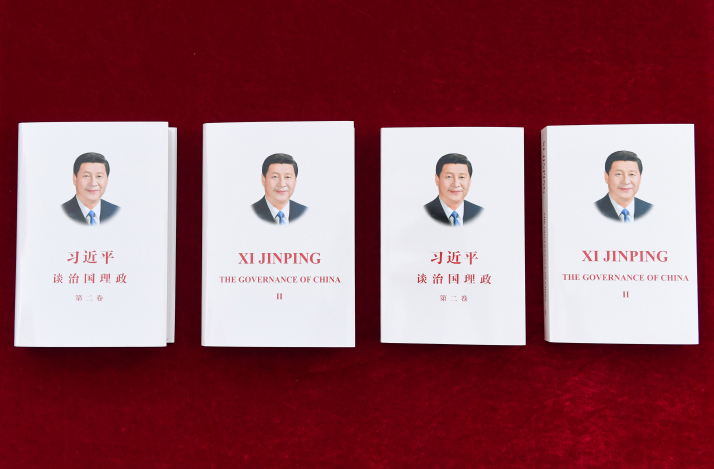 Copies of the second volume of President Xi Jinping's book The Governance of China (XINHUA)
Second Volume of Xi's Book
The second volume of Xi Jinping: The Governance of China, was published on November 7 by the Foreign Languages Press in both Chinese and English. The book is a collection of 99 of Xi's speeches, conversations, instructions and letters, as well as 29 photos of the Chinese leader between August 18, 2014, and September 29, 2017. The articles were divided into 17 sections and arranged by topic. It is an authoritative work on Xi Jinping Thought on Socialism with Chinese Characteristics for a New Era, which was established as a new component of the CPC's guide for action at the 19th CPC National Congress. It has been described as a vivid account of how the CPC Central Committee, with Xi at its core, leads the Party and the Chinese people to develop socialism with Chinese characteristics. It also yields insights into Xi's charisma and personality. The first volume of the book, published in September 2014, is now available in 24 languages and 27 editions, and has sold more than 6.6 million copies worldwide. 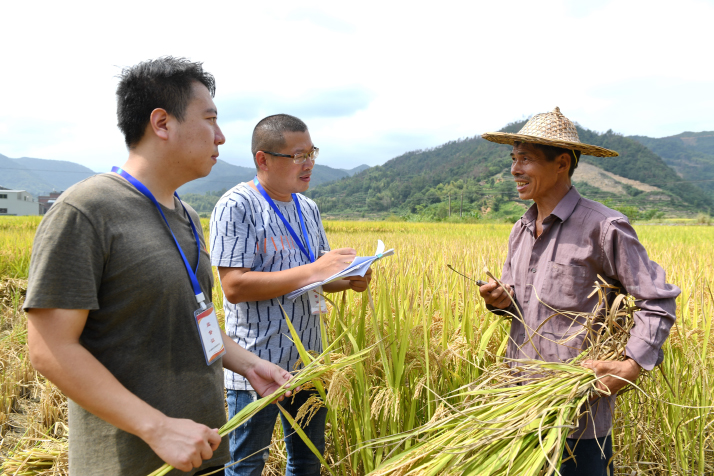 Officials communicate with a villager in Yangzhong Village, Fuding City of Fujian Province, on the allocation of poverty alleviation funds on September 30 (XINHUA)
Poverty Alleviation Continues
On June 23, President Xi Jinping chaired a meeting in Taiyuan, Shanxi Province, to address the issue of extreme poverty, pledging more support for extremely poor areas. A document issued later by the general offices of the CPC Central Committee and the State Council said eradicating abject poverty, which persists in places including Tibet Autonomous Region and parts of Xinjiang Uygur Autonomous Region as well as the provinces of Sichuan, Yunnan and Gansu, is crucial for the success of the country's poverty elimination campaign. In recent years, China has been waging a war against poverty to achieve the goal of eliminating it by 2020. From 2013 to 2016, 13.91 million people were lifted out of poverty each year. The number of people being lifted out of poverty this year is estimated to reach at least 10 million. 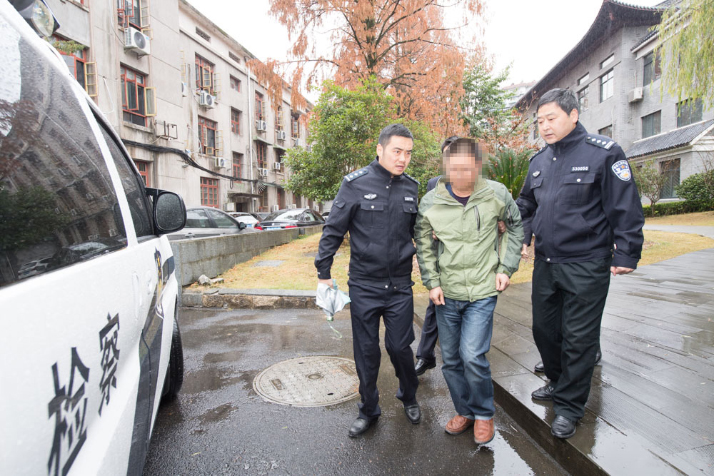 A suspect involved in abuse of duties is transferred from the Supervisory Commission of Jiande City, Zhejiang Province, to the local procuratorate, on December 15 (XINHUA)
Supervisory System Reformed Nationwide
Since November 5 this year, major reform of the supervisory system has been rolled out across the country. This constitutes a significant reform of the political system, and represents a step toward implementing the decisions made at the 19th CPC National Congress. At the congress, it was agreed to set up supervisory commissions at national, provincial, city and county levels to ensure that everyone involved in public sector work would be subject to supervision. The supervisory commissions will work together with the Party's own discipline inspection bodies, which focus on the enforcement of Party discipline. A national supervision law will be formulated to grant supervisory commissions responsibilities, powers and means of investigation. The reform was piloted in Beijing, Shanxi and Zhejiang before being implemented nationwide. 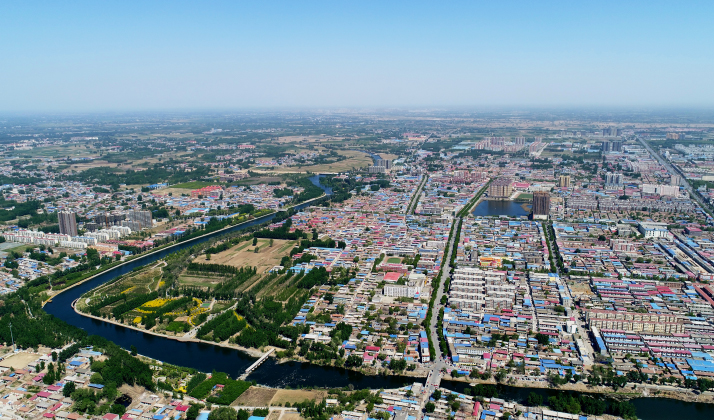 A bird’s-eye view of Xiongxian County's seat, a part of the Xiongan New Area, on April 26 (XINHUA)
Xiongan New Area Is Unveiled
On April 1, China announced plans to establish the Xiongan New Area in Hebei Province. The new area is situated around 100 km southwest of downtown Beijing, and spans the counties of Xiongxian, Rongcheng and Anxin. The plan was described in a circular issued by the CPC Central Committee as "a strategy that will be crucial for a millennium to come." The proposal arrived amidst wider measures to advance the coordinated development of the Beijing-Tianjin-Hebei region. Xiongan will accommodate various facilities which are to be moved out of Beijing because they are not deemed essential to the city's function as the nation's capital, in an effort to ease the mounting pressures of population and pollution in the capital. It is also expected to be a new driver of economic growth in China, and its impact is predicted to rival that of the Shenzhen Special Economic Zone in south China's Guangdong Province and the Pudong New District in Shanghai, the two trailblazers of the country's economic reform. Xiongan initially covers around 100 square km with plans for further expansion, ultimately reaching around 2,000 square km in the long term. Located near Baiyangdian, northern China's largest freshwater wetland, the area enjoys substantial water resources, convenient transportation and ample room for future development. 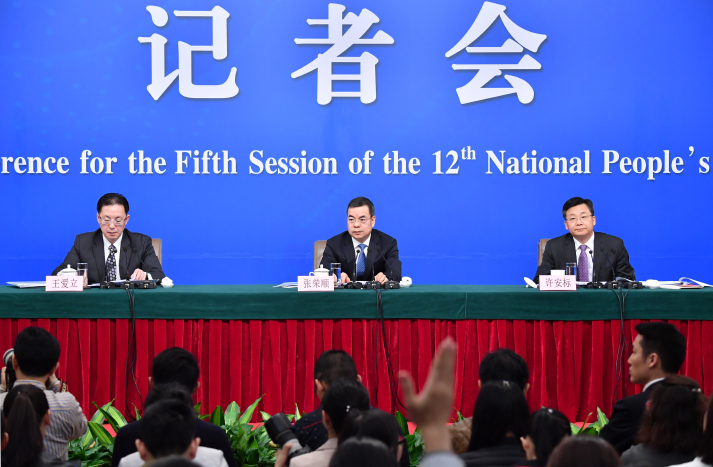 A press conference on the draft of the General Provisions of the Civil Law and the legislative work of the National People’s Congress (NPC) during the Fifth Session of the 12th NPC, at which the General Provisions were adopted, in Beijing on March 9 (XINHUA)
New Laws Take Effect
2017 saw the implementation of a number of new laws, including those pertaining to traditional Chinese medicine (TCM), cybersecurity, and civil activities. The General Provisions of the Civil Law took effect on October 1. As the opening chapter of China's civil code, it replaces the General Principles of the Civil Law adopted in 1986, and follows a decision made in 2014 to compile a civil code by 2020. In addition to the General Provisions, which lay down basic principles for regulating civil activities, five books on property, contract, tort liability, marriage and inheritance are also set to be compiled. The General Provisions cover topics including the rights of fetuses, the civil capacity of minors, and guardianship. On July 1, the TCM Law became effective, giving TCM a more prominent role within China's medical system. The law requires local governments starting at the county level to set up TCM institutions in public-funded general hospitals as well as mother and child care centers. The law stipulates that all TCM practitioners must first pass examinations qualifying them for the role, and aims to place TCM and Western medicine on an equal footing in China. It also guarantees government support for TCM research and development, as well as the protection of TCM intellectual property and medical resources. The law calls for the increased use of TCM technology in dealing with emergency public health incidents, and disease prevention and control. China's Cybersecurity Law went into effect on June 1. The law has been enacted to safeguard national security and citizens' rights online. 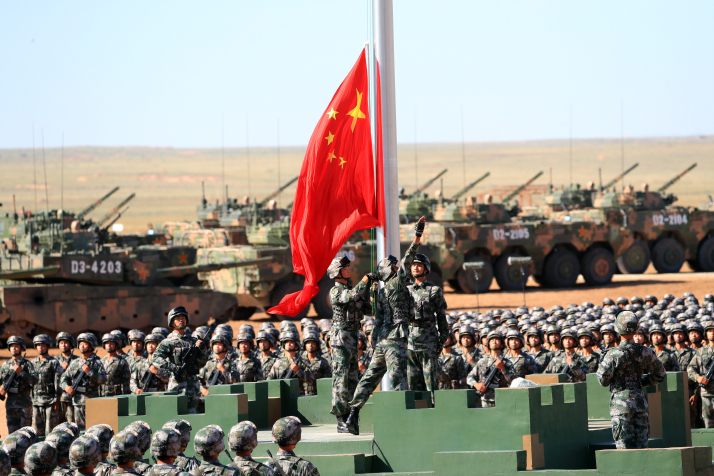 Soldiers raise the national flag during the military parade marking the 90th anniversary of the People’s Liberation Army at the Zhurihe training base in north China's Inner Mongolia Autonomous Region on July 30 (XINHUA)
The 90th Anniversary of the PLA A military parade was held at the Zhurihe military training base in north China's Inner Mongolia Autonomous Region on July 30 to mark the 90th birthday of the People's Liberation Army (PLA), which fell on August 1. During its long history, the PLA has made itself stronger through continuous reform and innovation. On April 26, China's second aircraft carrier and the first to be domestically produced, was transferred from dry dock to water at a launch ceremony in Dalian, Liaoning Province. Meanwhile, the Chinese military continues to fulfill its international obligations. On August 1, China's first overseas military support base was put into operation in Djibouti. The base is tasked with supporting escort missions in the Gulf of Aden and waters off Somalia, as well as peacekeeping and humanitarian relief in Africa and West Asia.  China’s first cargo spacecraft Tianzhou-1 docks with the Tiangong-2 space lab in orbit on April 22 (XINHUA)
Record-Breaking Spacecraft
On April 20, China's first cargo spacecraft Tianzhou-1 was successfully launched from the Wenchang Space Launch Center in south China's Hainan Province. It docked with the Tiangong-2 space laboratory in orbit, fulfilling its mission to transport fuel and resupply materials. Designed to carry 6.5 tons of cargo, it is the heaviest spacecraft that China has ever built, and a key step toward China's goal to establish a permanently manned space station by 2022. 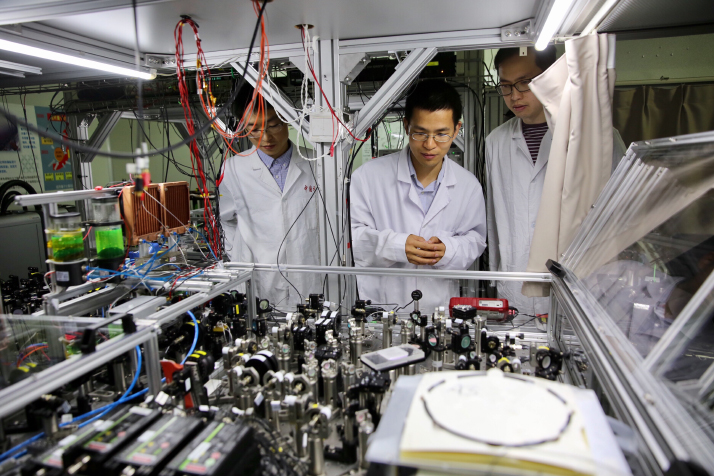 Researchers check the performance of the quantum computer developed by Chinese scientists in a laboratory in Shanghai on May 3 (XINHUA)
Quantum Computer Breakthrough
On May 3, Chinese scientists announced that they had successfully built the world's first quantum computing machine able to surpass early classical computers. The prototype quantum computer, developed by scientists at the Shanghai-based Institute for Quantum Information and Quantum Technology Innovation of the Chinese Academy of Sciences, is 10 to 100 times faster than the first electronic computer, ENIAC, and the first transistor computer, TRADIC. The sampling rate of this prototype is at least 24,000 times faster than its current international counterparts. The computing power of a quantum computer grows exponentially with the number of quantum bits that can be manipulated. This could effectively solve computation problems beyond the ability of conventional computers, according to scientists. 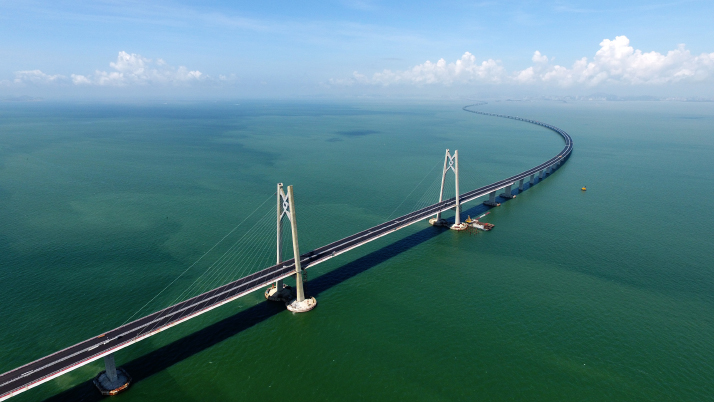 Hong Kong-Zhuhai-Macao Bridge (XINHUA)
Hong Kong-Zhuhai-Macao Bridge to Open
The load testing of the monumental Hong Kong-Zhuhai-Macao Bridge's main structure was completed on November 14, meaning that the project has now entered the acceptance period. The bridge is set to be open to traffic soon. Spanning the waters of Lingdingyang, the transport infrastructure project will connect Hong Kong Special Administrative Region in the east, and Macao Special Administrative Region and Zhuhai City of Guangdong Province in the west. Reaching a total length of 55 km and consisting of a series of bridges as well as an undersea tunnel, it will be the world's longest sea-crossing structure. Copyedited by Laurence Coulton Comments to zanjifang@bjreview.com |
|
||||||||||||||||||||||||||||||
|